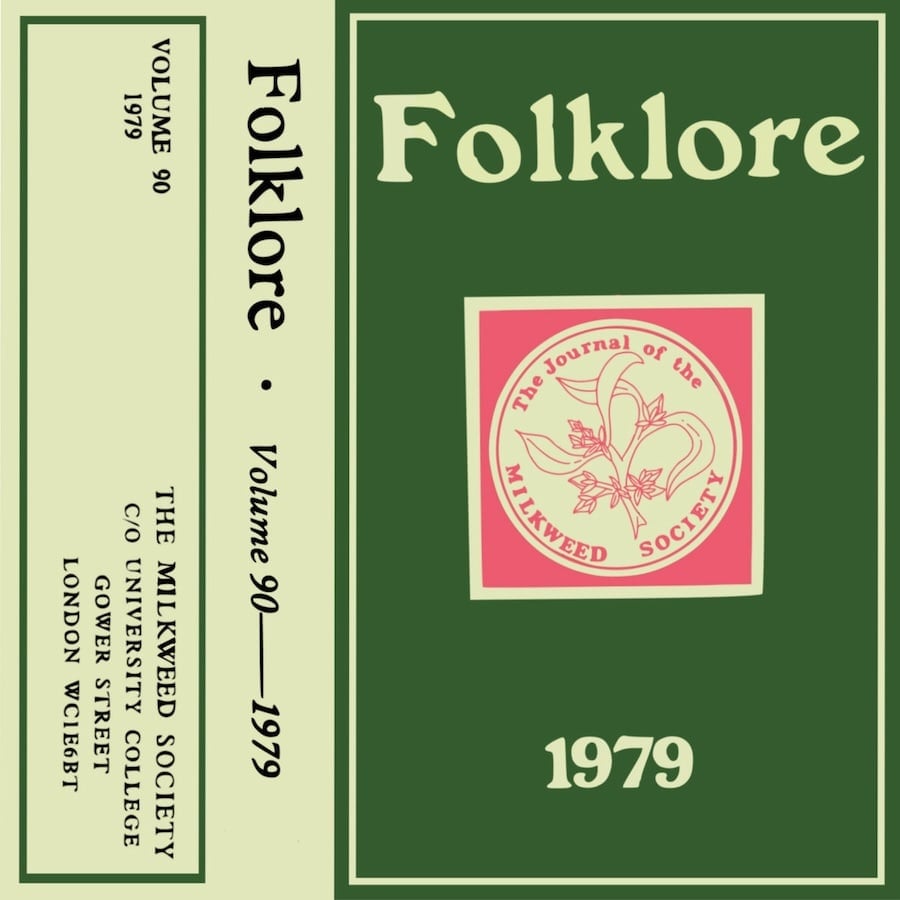
The entity known as Milkweed exists, but not in the same way that other bands exist. Their songs appear and disappear. Their faces never appear in photographs. There is a temptation to think of their antics as self-destructive, but in reality, there is something far more interesting going on than mere erasure. To self-destruct, there has to be a distinguishable self in the first instance, and in Milkweed’s case, there isn’t, at least not in the way that conventional bands have a curated identity that is in some way a reflection of their artistic output. We don’t know the names of either member, not because of some artistic whim, some urge to obfuscate in the name of a juicy little mystery, but because they have genuinely managed to separate the idea of self from music making. Their releases seem to grow into existence, mushroom-like, and some of them deliquesce into the infinite substrate of the internet while others live on precariously as that most temporary and malleable of forms, the tape.
Folklore 1979, like their previous two releases, uses written source material, serendipitously obtained, as a kind of rough ore from which they extract lyrics. These are then turned into short songs that draw on Appalachian and British folk, experimental electronics and a kind of warped plunderphonic hip-hop aesthetic to create something that sounds, quite simply, like nothing else in the world. In this case, the source text is a 1979 academic journal published by The Folklore Society. The words, whittled down to nine semi-distinct songs over eleven minutes, include a spoken recording called The Legend of the Pacing White Mustang, which discusses the strange evolutionary fate of North America’s wild horses.
Elsewhere, melodic banjos are interrupted by industrial scraps and unexpected loops. In fact, interruption is a key element of Milkweed’s sound. Opening track, My Father’s Sheep Is Dead, seems hellbent on undermining itself. Each individual component – a sputtering tape, a strange and striking melody, a minimalist riff – seems more insistent than the last. It seems like a breed of postmodernism, but in reality, it’s more than that: folklore is essentially a facet of the history of humanity, and Milkweed are presenting that facet in an entirely original way.
In places, a vocal phrase will jump out at you for no apparent reason and stick with you long after the piece has finished. Sometimes, the text will take on an apparently accidental second meaning: a spark of contemporary resonance will shoot off an ancient story. But the fact that the duo spent months choosing and preparing the exact combinations of words to mine from the journal shows that these sudden bright flashes are no accident.
If there is a centrepiece, it is Mordred, King Arthur’s Son. Just voice and scratchy percussion, it creates in a minute and a half a world of paranoia and powerlessness. It is a world of incest and murder, which is positioned worryingly close to our own world. The Tree as a Kinship Symbol is full of disconcerting beats and words that seem to rise to the surface as if from an abyss. The final track, Obituaries, sets gentle banjo against popping electronics. Buyers of the release on tape are also treated to a further eleven minutes: a single, exploratory banjo track that performs an uneasy dance with the experimental, off-the-cuff electronics. This second side is a kind of warped reflection of the first: improvisatory rather than painstakingly prepared, it eschews the formal logic of folk melody. While the components of the sound are similar, the effect on the listener is markedly different.
Taken together, these aspects contribute to one of the most invigorating and interesting releases of recent years. The duo, with their insistence on the temporary nature of their work and the denial of authorship, would no doubt balk at the term masterpiece, but for as long as Folklore 1979 exists in the world, it will have to contend with such labels.
Order on Digital/Cassette: https://milkweedfolk.bandcamp.com/track/my-fathers-sheep-is-dead
Alongside their new album they are releasing a video project by Greg Butler.
